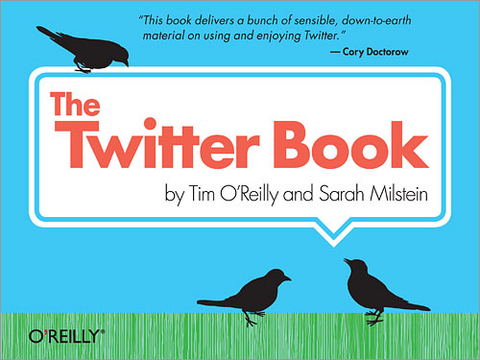
I just finished reading Tim O’Reilly and Sarah Milstein‘s excellent The Twitter Book. My copy is now completely dog-eared, prompting me to follow up on many Twitter related services I didn’t yet know about.
The introduction is great. It answers the question that I get asked often and that I sometimes struggle to answer: What’s Twitter good for? O’Reilly and Milstein give the following five persuasive reasons:
- Ambient intimacy. When a lot of my colleagues at Stoas Learning (when I was still there) started using Twitter it immediately led to a different relationship between many of us. Without investing much, you keep in touch with what people are doing in their professional and private lives.
- Sharing news and commentary. If I was a different person it would be perfectly easy to keep up with what are the most important developments in the learning technology solely through other people’s Twitter updates.
- Breaking news and shared experiences. Twitter seems to have taken the role that CNN had during the first Gulf war: the place with the most recent news updates. There are many examples of this. The Iranian non-election being the most recent one. It is also a great way to communicate in realtime with people you don’t know sharing the same experience as you. My most recent experience of this was the UK Moodlemoot.
- Mind reading. Using Twitter’s search engine you can instantly get a feel for how (a group of) people are thinking about a certain issue or company. What makes it different from anything else is the fact that it is in realtime.
- Business conversations. More and more companies are realising they can get real value from using Twitter properly. It facilitates a two way conversation that simply wasn’t possible before. My one critique of this book for example has already been acknowledged by one of its authors.
If, after this, you are still a Twitter nay-sayer, I would suggest you take a look at this Tony Stubblebine post, where he explains that one of the things that he has learnt from Twitter is to assume that a social networking service has value as soon as people are really using it.
My favourite quote in the book is about communities and value:
Funnily enough, the more value you create for the community, the more value it will create for you.
By the way, I am still waiting for a working federated microblogging solution that is less dependent on the whims of a single company!